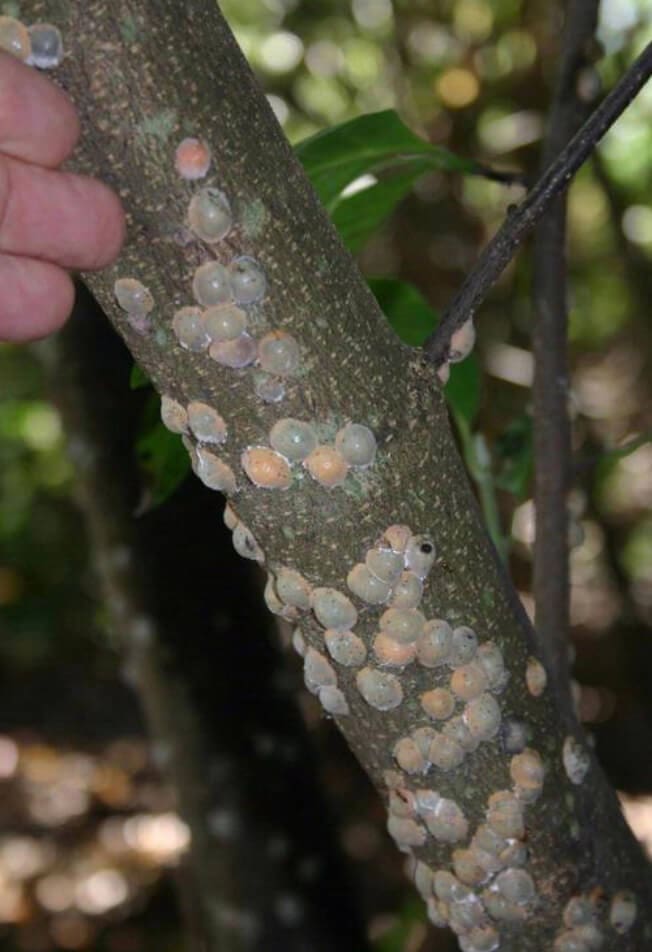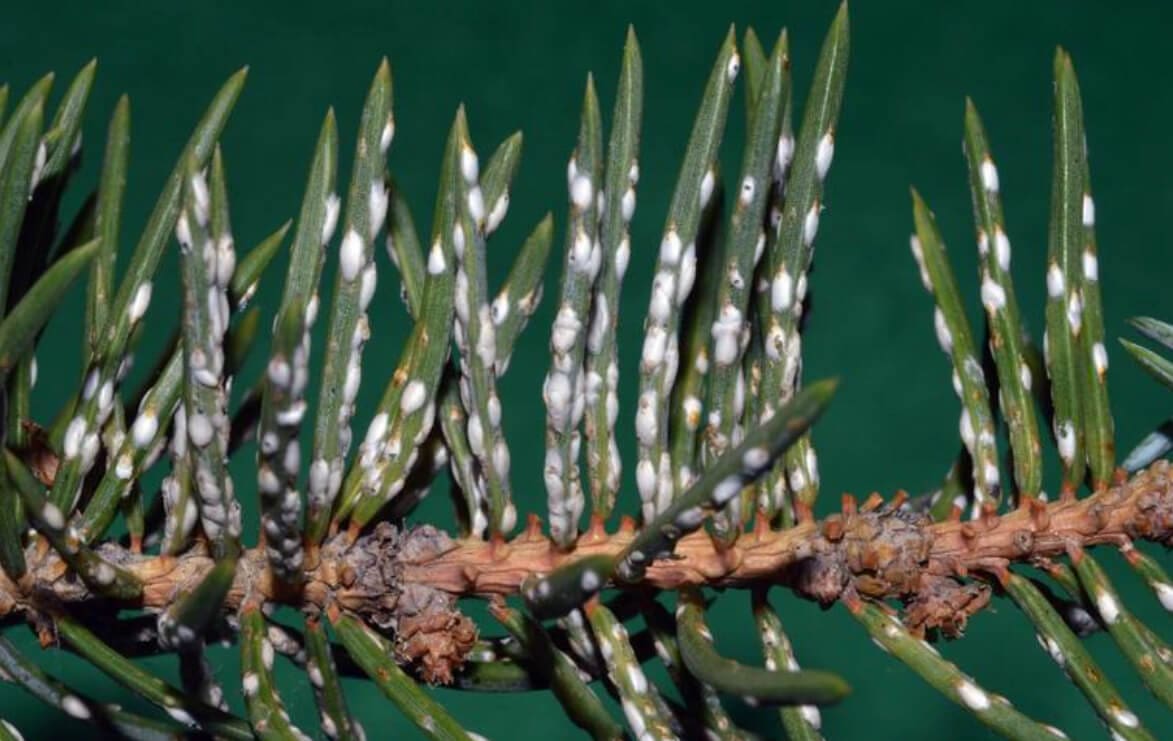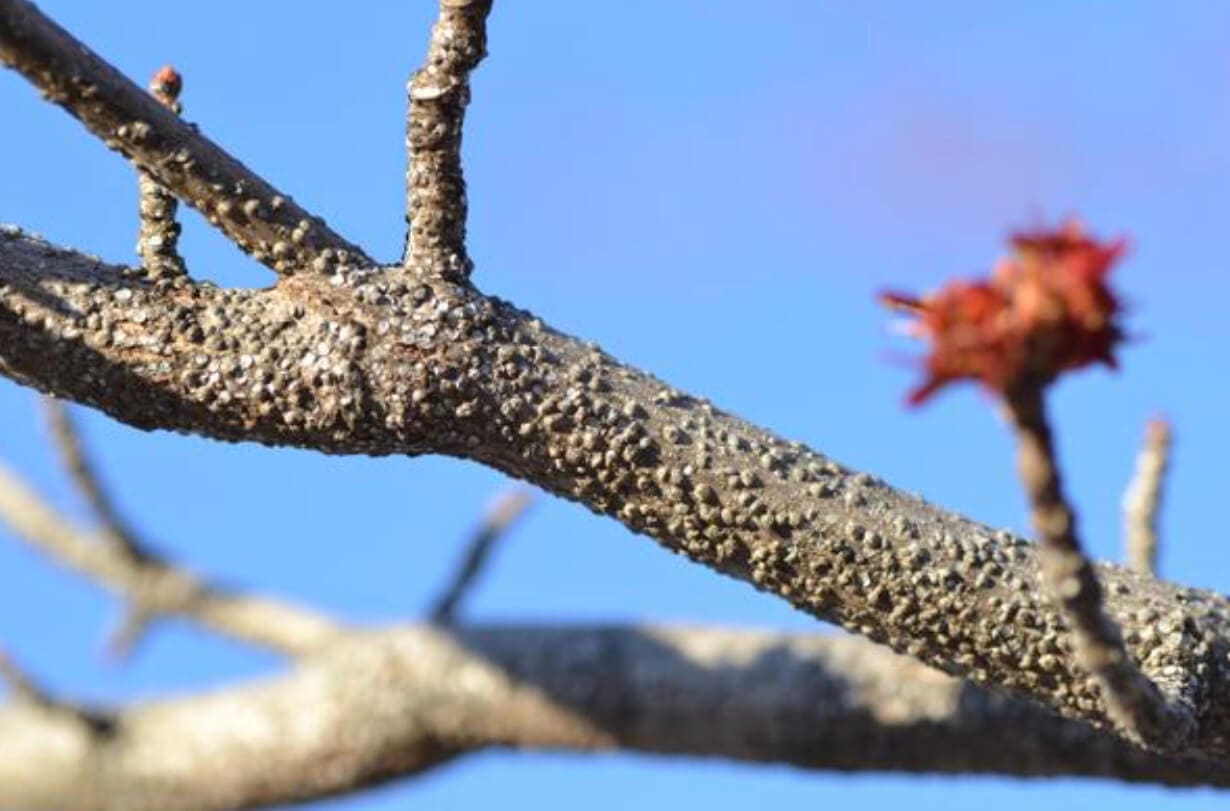Discovering pests on your trees can be disheartening, but according to arborists nationwide, scale infestations are among the most prevalent challenges faced by tree owners. In this post, Jackson Tree Service will delve into the intricacies of scale infestations, highlighting the key differences between armored and soft scale, identifying susceptible trees in your area, and providing effective treatment recommendations.
Armored vs. Soft Scale: Unveiling the Differences
Scale infestations come in two main types—armored and soft scale. Both varieties utilize piercing/sucking mouthparts, but their feeding habits within the plant tissue set them apart. Soft scale penetrates the vascular system, leading to honeydew excretion. On the other hand, armored scale, blending with twig bark, feeds on intercellular and mesophyll tissue, causing chlorotic leaf spots and potential leaf drop.
Trees at Risk in Our Area: Identifying Vulnerable Species
Scale often targets trees already stressed by factors such as soil compaction, drought, nutrient deficiencies, improper planting sites, and mechanical damage. Understanding the symptoms and risk factors can help protect your trees from scale infestations.
Common Scale Varieties and Their Preferred Hosts
Magnolia Scale
Exclusive to magnolia trees, this scale can be identified by its distinct appearance


Pine Needle Scale
Primarily affecting pine trees but also observed on spruce trees.
Gloomy Scale
Most prevalent on red maples, but can also be found on silver maples, boxelder, catalpa, elm, hackberry, mulberry, and sycamore.

Recognizing Scale Symptoms: A Call to Action
Keep a vigilant eye on your trees, especially if you have magnolias, pines, or other susceptible species. Look out for symptoms such as thinned canopies, mild chlorosis (yellowing leaves), twig and branch dieback, stunted growth, and the presence of honeydew or sooty mold. If you notice any concerns, don’t hesitate to contact our certified arborists for a thorough inspection.
Effective Treatment Recommendations: Safeguarding Your Trees
For comprehensive scale control, we recommend an insecticide treatment capable of addressing both armored and soft scale. Apply the insecticide during the summer, coupled with a horticulture oil application in the subsequent dormant season. Following these initial treatments, an annual soil application is sufficient for ongoing control. Given the elusive nature of scale, it’s crucial to have our certified arborists inspect your trees regularly.
Contact us for a consultation with our certified arborists.
Preventative Care
Protecting your trees from scale infestations requires a proactive approach. By understanding the nuances of scale types, identifying vulnerable tree species, recognizing symptoms, and implementing effective treatments, you can ensure the health and longevity of your cherished trees. Schedule a consultation with our certified arborists to safeguard your trees from the subtle yet destructive presence of scale.
